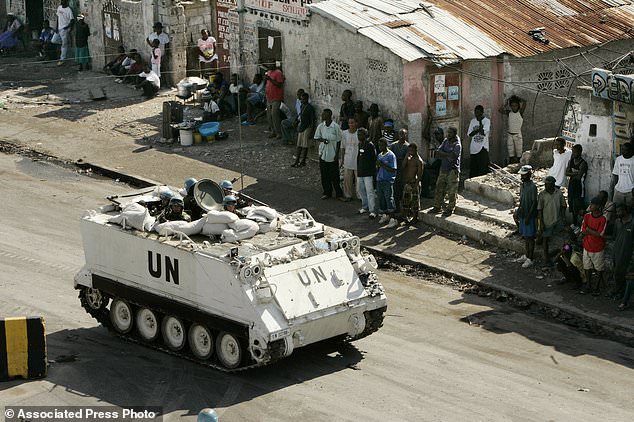Hands off Haiti!!—No Military Intervention!!
LATIN AMERICA AND THE CARIBBEAN, 14 Nov 2022
Richard S. Dunn | CovertAction Magazine - TRANSCEND Media Service
12 Nov 2022 – Since the summer of 2018, Haiti has been experiencing mass protests. Thousands of Haitians have taken to the streets to express their frustration and anger regarding the current social conditions on the island. The social upheavals are a cause of concern for all progressive people, especially since the unrest has increased since August 22 of this year.
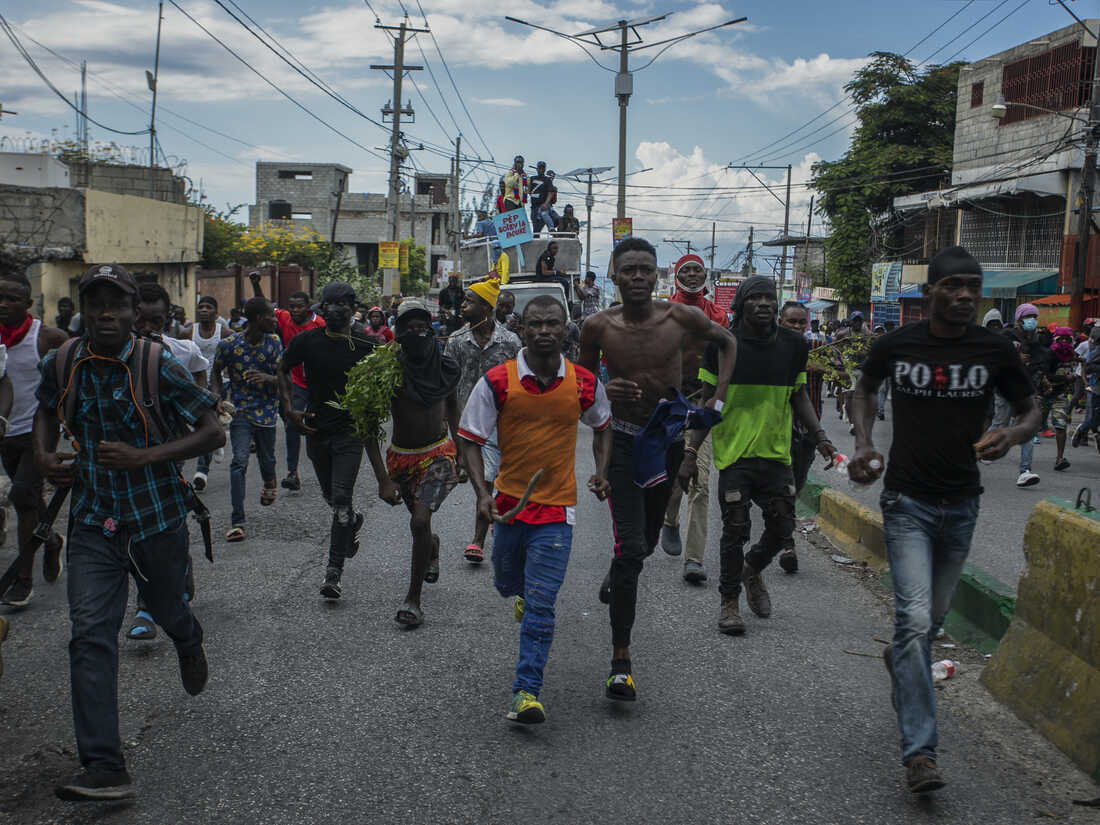
What is more troubling is that acting President of Haiti Ariel Henry, addressing the country, remarked that the government intends to request international “assistance” to deal with the social crisis in Haiti. Ariel Henry officially wrote to United Nations Secretary-General António Guterres that the UN should intervene militarily to bring the situation back to normal. Secretary-General Guterres on October 10 urged the international community to review deploying military forces to Haiti to resolve the crisis situation.
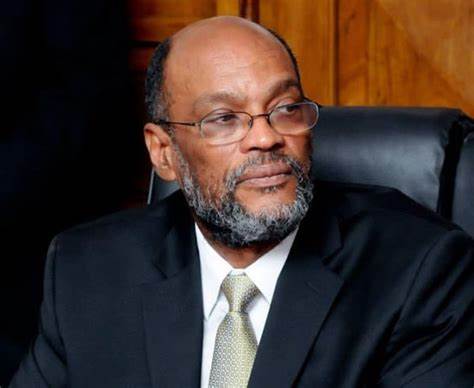
Haiti’s Sovereignty Always Under Attack
Shortly after the comments from Ariel Henry, the United States Government sent a delegation to Haiti supposedly to “review” Henry’s request; on Monday October 17, the UN Security Council met to discuss a suggestion from the United States and Mexico to send in non-UN forces and later announced the imposition of sanctions against “gang” leaders. These developments are troublesome and the erroneously misleading narrative of “gang violence” is establishing an ideological justification for military intervention—United States military intervention.
The United States and Canada have delivered military machinery to Haiti under the suspicious title of “security equipment”; this “security equipment” includes armored and tactical vehicles to be used to strengthen the police to fight “criminal gangs.” It is reported that, by October 28, Haiti will receive additional delivery of military machinery.
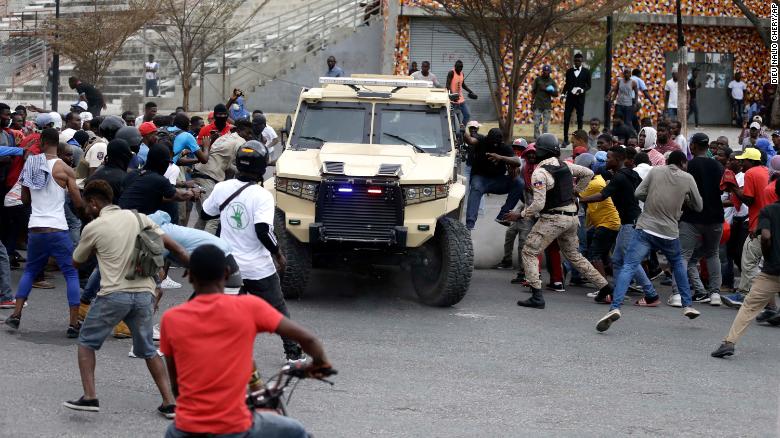
This request by Ariel Henry is tantamount to treason and António Guterres’s comments are not only suggestively racist but also an affront to the sovereignty and independence of Haiti. To request outside military intervention, to solve problems of your country, is a sellout of the sacrifices the enslaved Africans made to achieve their freedom and set up their own independent state.
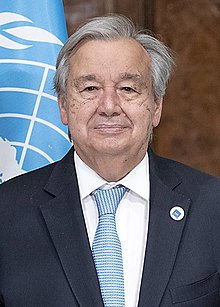
Underlying the call for intervention is the age-old erroneous premise that Black people are incapable of governing themselves and hence need white people to guide and manage their affairs. This is without question an infringement on International Law and the UN Charter regarding the non-interference in the domestic affairs of other countries. I strongly doubt that Guterres would make such a suggestion were Haiti a white country.
The Crisis in Haiti Is Imperialist-Made
In 1791 the enslaved people of Haiti carried out the first successful slave revolution and in 1804 established the first Black Republic in the Western Hemisphere. For the next 218 years the people of Haiti have been engaged in a constant struggle to further develop and carry out the intent of their revolution for self-determination, social justice and socio-economic independence.
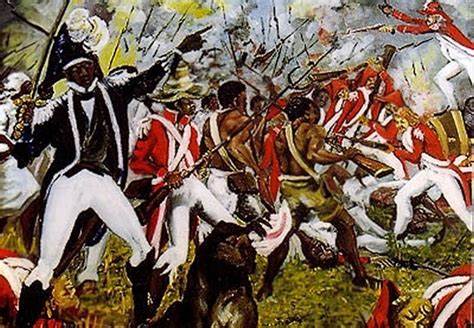
These goals have become unattainable because of occupation, dictatorship, destabilization, theft by Wall Street financial interests aided by the United States military, governmental corruption, natural disasters and, most critically, the payment of reparations to their former enslavers. Haitians have had to pay in cash for their freedom from enslavement and subsequent independence; the imperialist powers and the local and foreign oligarchs have all benefited from this immoral, ridiculous and treacherous policy.
Since the establishment of the Republic of Haiti, the response from the colonialists and international imperialism has been to punish Haiti and crush the revolution and its original goals of a just and equitable society and self-determination. In May 2022 The New York Times published an expose that lays bare the genesis of Haiti’s problems.
In a series titled “The Root Of Haiti’s Misery: Reparations to Enslavers,” the article in part says: “The colony made many French families fabulously rich.…It was also…the world’s most brutal.…But for generations after independence, Haitians were forced to pay the descendants of their former slave masters…The burdens continued well into the 20th century.”
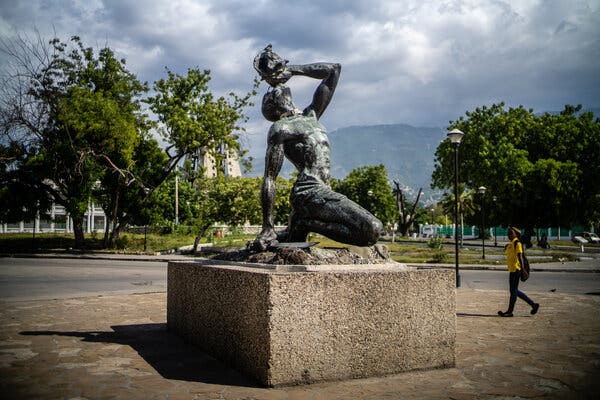
The piece continues: “The wealth…coaxed from the ground brought wild profits for a French Bank that helped finance the Eiffel Tower…Haiti’s riches lured Wall Street, too, delivering big margins for the institution that ultimately became Citigroup.”

According to the Times the financial loss to Haiti is approximately $115 billion, “eight times the size of its economy in 2020.” The United States invaded and occupied Haiti from 1915 to 1934; prior to this, in 1914 the United States stole $500,000 worth of gold from the National Bank of Haiti, which was then transported to the United States by the military vessel USS Machias. The gold ended up in the vault of Hallgarten & Co. a City Bank (later known as CitiBank) affiliate.
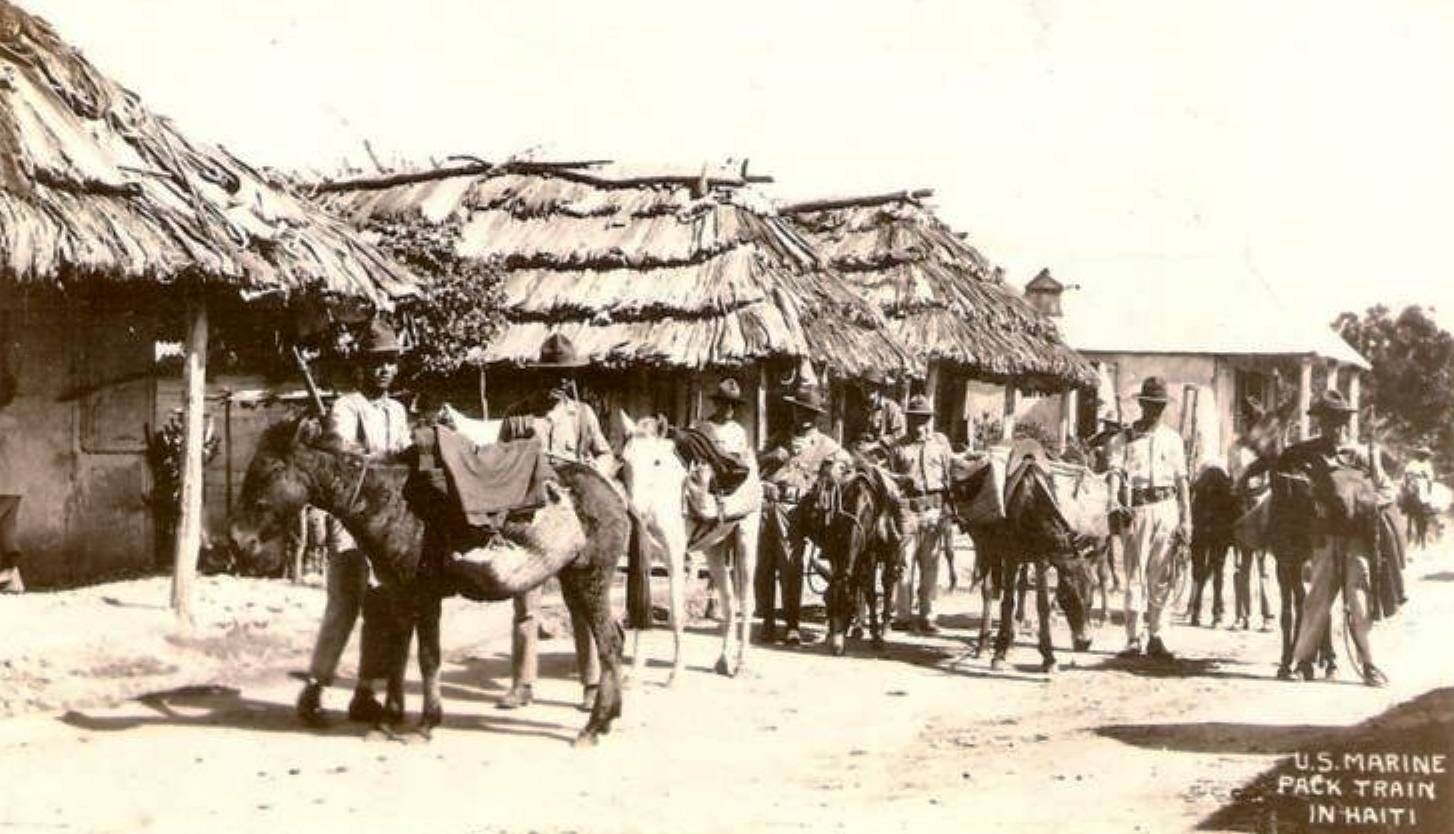
Added to this, the country was also devastated by the U.S.-instigated and supported dictatorship of François Duvalier (“Papa Doc”) and later his son Jean-Claude Duvalier “Baby Doc” from 1957 to 1986, who both ruled the nation with iron fists.
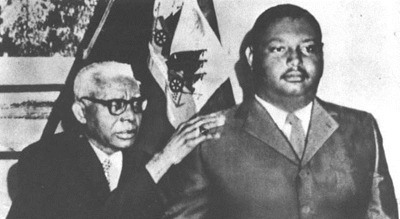
Corruption by the Duvaliers and other government officials, and murderous repression through the para-military group the Tonton Macoute, tortured and killed opponents including ordinary citizens. Haiti’s woes were not over as the country suffered two U.S.-orchestrated and executed military coups against democratically elected President Jean-Bertrand Aristide, first in 1991 and again in 2004.
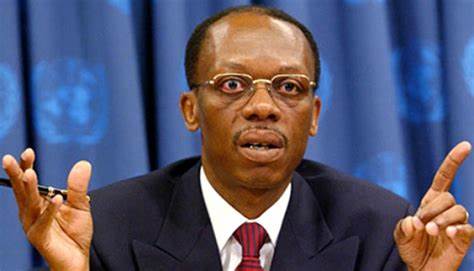
U.S. Imperialism’s Attempt to “Destroy” Haiti
Haiti’s attempt both to feed itself and improve the social conditions of its citizens were directly thwarted by the United States government by flooding Haiti with rice grown by U.S.-subsidized farmers and sold much cheaper than that locally produced.
The Canada-Haiti Information Project has reported that “since 1995 the U.S. has given over $13 billion in subsidies to American rice farmers…That keeps the price of American rice exported to Haiti significantly lower than rice produced by Haitian farmers.” This arrangement puts the local farmers at a great disadvantage because they cannot compete with such an unfair and disproportionate arrangement and eventually forces many of them out of business.
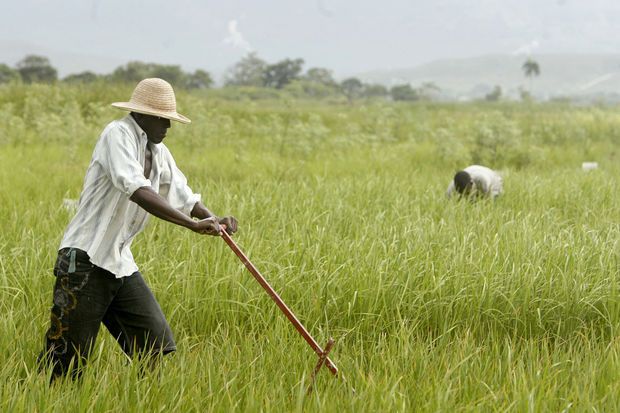
The Haitian parliament made an attempt to raise the standard of living for the citizens by raising the minimum wage to $5 per day; the United States on behalf of the textile companies intervened and had the bill blocked.
Haiti was part of the PetroCaribe Agreement that was set up in 2005 by Venezuela under late President Hugo Chávez. The Agreement in part offered affordable prices on petroleum products and to promote socio-economic development by eliminating inequality and improving the quality of life in the partner countries. The illegal and immoral sanctions imposed on Venezuela prevented Haiti from participating in the program and receiving affordable petroleum products, hence the increase and scarcity of fuel in the country.
What Is to Be Done
The current social crisis in Haiti has extraordinarily little to do with “gangs” but is a result of machinations carried out by the Core Group led by the United States and their allies: Canada, France, the European Union (EU) and the lackey Organization of American States (OAS).
The citizens of Haiti have taken to the streets across the country to protest their frustration against economic misery: food insecurity; increasing inflation; high fuel prices and shortage; and an end to foreign interference and intervention in the internal affairs of the country.
Most importantly, the protesters are demanding the resignation of acting President Ariel Henry, who they say is incapable of addressing the socio-economic issues and bringing peace and stability to the country.
In order for Haiti to begin the long and arduous road to recovery the following needs to be done:
- The United States and its allies—especially Canada, France and Britain—must immediately stop interfering in the internal affairs of Haiti.
- There must be NO military intervention, UN or otherwise.
- There must be NO support for foreign intervention in Haiti, disguised as “assistance” by organizations such as the Caribbean Community (CARICOM), the Organization of American States (OAS), the Community of Latin American and Caribbean States (CELAC), or the African Union (AU).
- The United States and its allies must stop supporting a repressive, corrupt and illegitimate regime represented by Ariel Henry and the local oligarchy.
- Progressive forces, internationally and within the African diaspora especially, must demonstrate solidarity with the people of Haiti by engaging their respective elected officials and participatory social action to thwart any impending military action and allow the people of Haiti to solve their own problems, in their own way.
___________________________________________________
 Richard S. Dunn has been a social justice activist since 1968 and was particularly active with the Walter Rodney defense demonstrations. He is an author, contributing columnist to newspapers, editor for a music industry magazine, and operates a social justice website. He can be reached at: richarddunn75@gmail.com
Richard S. Dunn has been a social justice activist since 1968 and was particularly active with the Walter Rodney defense demonstrations. He is an author, contributing columnist to newspapers, editor for a music industry magazine, and operates a social justice website. He can be reached at: richarddunn75@gmail.com
Go to Original – covertactionmagazine.com
Tags: Anglo America, Anti-imperialism, Bullying, Haiti, Hegemony, Imperialism, Latin America Caribbean, Military Intervention, USA
DISCLAIMER: The statements, views and opinions expressed in pieces republished here are solely those of the authors and do not necessarily represent those of TMS. In accordance with title 17 U.S.C. section 107, this material is distributed without profit to those who have expressed a prior interest in receiving the included information for research and educational purposes. TMS has no affiliation whatsoever with the originator of this article nor is TMS endorsed or sponsored by the originator. “GO TO ORIGINAL” links are provided as a convenience to our readers and allow for verification of authenticity. However, as originating pages are often updated by their originating host sites, the versions posted may not match the versions our readers view when clicking the “GO TO ORIGINAL” links. This site contains copyrighted material the use of which has not always been specifically authorized by the copyright owner. We are making such material available in our efforts to advance understanding of environmental, political, human rights, economic, democracy, scientific, and social justice issues, etc. We believe this constitutes a ‘fair use’ of any such copyrighted material as provided for in section 107 of the US Copyright Law. In accordance with Title 17 U.S.C. Section 107, the material on this site is distributed without profit to those who have expressed a prior interest in receiving the included information for research and educational purposes. For more information go to: http://www.law.cornell.edu/uscode/17/107.shtml. If you wish to use copyrighted material from this site for purposes of your own that go beyond ‘fair use’, you must obtain permission from the copyright owner.
Read more
Click here to go to the current weekly digest or pick another article:
LATIN AMERICA AND THE CARIBBEAN:
